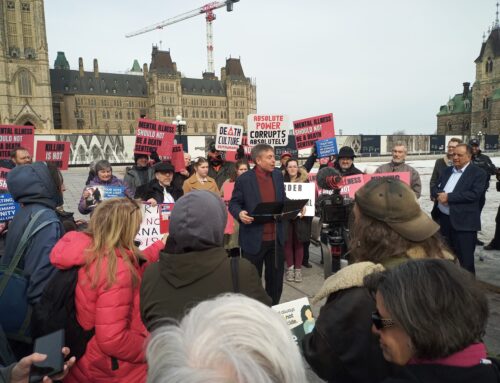
Lawyer Albertos Polizogopoulos says doctors should not have to choose between their conscience and their practice.
Five doctors and three doctors’ groups were in an Ontario court June 13-15 arguing a policy from the College of Physicians and Surgeons of Ontario (CPSO) violates their Charter rights to freedom of conscience and religion. The CPSO forces doctors to refer patients for euthanasia and abortion, even when it violates their conscience or religion. Kathleen Wynne’s Liberal government intervened on behalf of the college.
The 2015 CPSO policy requires that doctors who object on religious or conscience grounds to providing certain procedures such as abortion and euthanasia must give patients seeking these practices an effective referral. This means directly handing over a patient to another colleague who will follow through with an abortion or euthanasia request. The doctors argue this implicates them in the immoral practices to which they object.
Lawyer Albertos Polizogopoulos challenged the policy on behalf of the three doctors’ groups, including the Christian Medical and Dental Society of Canada (CMDSC), the Canadian Federation of Catholic Physicians’ Societies (CFCPS), and Canadian Physicians for Life (CPL). The groups say only Ontario forces objecting doctors to give an effective referral, or to actually kill patients themselves in an “emergency.”
The Catholic Civil Rights League and the Justice Centre for Constitutional Freedoms, intervened on behalf of the doctors’ groups.
The College argued that doctors are obliged to provide access to all legal “medical services,” regardless of their personal beliefs. The College asserts that it has a responsibility to “the practice of medicine in the interest of Ontario’s large and diverse patient population,” and therefore the Charter rights of religion and conscience of doctors are justifiably violated. The College says the issue is access, not Charter rights.
Polizogopoulos says the case is not about access, but “about whether the government can compel physicians to violate their consciences and their sincerely held religious beliefs.”
Jim Lane, president of the Canadian Federation of Catholic Physicians’ Societies, told the CBC said none of the jurisdictions that have approved euthanasia have also required physicians to take part in the procedure. “If a doctor in Ontario is a conscientious objector, the CPSO has stated they may suspend or sanction a doctor that won’t participate in assisted suicide,” Larry Worthen, executive director of the Christian Medical and Dental Society of Canada, told LifeSiteNews.
In a press release, the CMDS states that 168 Ontario doctors have notified the College they will not abide the policy and will not participate in euthanasia. One doctor, Mark D’Souza, who makes palliative care home visits, stopped taking new patients in March to avoid “until I know my conscience rights as a physician are guaranteed in law,” he wrote in the Toronto Sun.
Worthen says other jurisdictions, including in Canada, do not compel doctors to provide an effective referral. In other provinces, such as Alberta, doctors who object to euthanasia provides a number for a euthanasia coordination center which the doctors’ groups says insulates objecting doctors from direct involvement.
The three judges reserved their decision, and Worthen expects it to take six months to a year before they rule.




